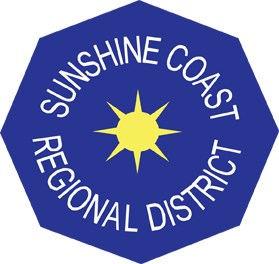Decisions on funding and how and when water meters will be installed in the District of Sechelt and on shíshálh Nation band lands have been left to the incoming board of Sunshine Coast Regional District (SCRD) directors.
Directors voted unanimously at the Sept. 20 infrastructure committee that the SCRD “confirms its commitment to the Universal Water Meter Program” and that funding and implementation options be brought to the 2019 budget deliberations, which typically start in January.
While no options for how to pay for and install meters have been suggested yet, remarks by SCRD chair and Sechelt mayor Bruce Milne and Roberts Creek director Mark Lebbell hinted at divisions between Sechelt and rural areas.
Milne said he would vote in favour of confirming the SCRD’s commitment to meters but that the community “made it very clear” they didn’t want to borrow money. “I wouldn’t proceed with water meters without a full referendum,” he said. “I think the community has asked that very, very clearly.”
Lebbell also supported the recommendations to confirm the SCRD’s commitment, but following Milne’s comments about a referendum, said, “The rural area populace would be very anxious for their Sechelt friends and neighbours [to take] the same measures.” He maintained that “it would be very difficult for a future area director to vote against metering,” since their constituents have “put a lot of sweat equity and a significant amount of private money into stopping leaks.”
The final stage of meter installations was supposed to start in 2018 but was delayed when a grant application to pay for them fell through. When presented with alternative funding options, directors voted to proceed with an Alternative Approval Process (AAP) to authorize a bylaw for a 20-year loan of up to $6 million.
In July, directors were forced to abandon the bylaw after the AAP failed, with 66 per cent of the objections coming from Sechelt.
At the Sept. 20 committee meeting, staff confirmed that water meter initiatives such as the Universal Water Meter Program are “essential for any future water infrastructure grants from both the provincial and federal governments.”
In 2008, the SCRD received a grant to improve water quality and conserve water in Pender Harbour and the installations were completed by 2015. Since then SCRD secured other grants to pay for installations in rural areas and the bulk of them are complete. To date, 1,430 leaks have been addressed, with a water savings of 3.7 million litres per day, including in Pender Harbour. The Town of Gibsons was the first government on the Coast to implement a water metering system. SCRD chief administrative officer Janette Loveys said meters were installed in rural areas first because of “the age of the infrastructure and higher average of water consumption in rural areas compared to the member municipality.”
According to an SCRD fact sheet, the SCRD’s goal is to reduce per capita water consumption by 33 per cent by 2020. As of 2017, consumption had been reduced by four per cent.



